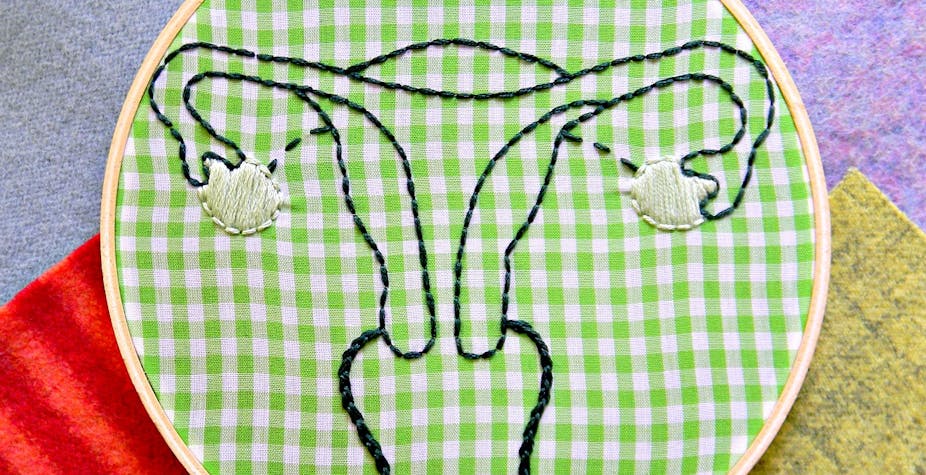Polycystic ovary syndrome (PCOS) is a hormonal condition that disrupts ovulation and the menstrual cycle. It’s the most common female hormonal condition, affecting roughly one in 12 Australian women.
Women with PCOS often have enlarged ovaries that contain small fluid-filled follicles, or cysts. These cysts are where the condition gets its name: polycystic = many cysts.
But although up to a third of women may have polycystic ovaries seen on an ultrasound, not all have the hormonal problems and physical symptoms that define PCOS.
For women with PCOS, the hormonal imbalances cause a number of symptoms such as irregular or absent periods, weight gain, acne, excessive body hair, mood changes, dark patches of skin and thinning head hair.
Because women with PCOS may not ovulate regularly or may not ovulate at all, some women may have difficulties getting pregnant.
While the cause for the hormonal imbalance is not yet known, it is believed to have some genetic basis.
Symptoms and related illnesses
PCOS is often first diagnosed in the late teen years, when young women notice the greasy skin of adolescence refusing to go away, as well as irregular and unpredictable periods.
To diagnose PCOS, GPs assess the patient’s symptoms and may take some blood test to check her hormone levels. The GP may also order an ultrasound of the uterus, ovaries and pelvis.
Women with PCOS are often more likely to put weight on around their waists. This form of body fat distribution is associated with the development of diabetes and heart disease later in life, so GPs may do further testing for these conditions.
Women with PCOS are also at increased risk of cancer of the womb, as the irregular periods and absent ovulation can lead to uncontrolled thickening of the lining of the womb.
But while some women with PCOS can present with a range of conditions, others may have no symptoms at all. These women may never develop any significant symptoms, or only experience symptoms when they are above a healthy weight.
Treatment
To decrease the risk of cancer, heart disease and diabetes, women with PCOS need to take particular care with their health from an early age. Doctors will provide advice to women with PCOS about diet and exercise, and some women may find their symptoms resolve as they lose weight.
To alleviate symptoms of PCOS, doctors may prescribe the contraceptive pill. The pill regulates hormones and is an excellent way to control greasy skin and irregular periods, as well as providing contraceptive protection.
Woman with early signs of diabetes may be prescribed metformin, which addresses the cause of diabetes and helps with the symptoms of PCOS. It can also lead to regular ovulation for woman trying to get pregnant. Interestingly, if taken during pregnancy it may reduce the risk of miscarriage.
The downsides to metformin treatment is it can make women feel sick, bloated or cause diarrhoea.
For symptoms related to high male hormones such as increased body hair, thinning head hair or acne, doctors may prescribe anti-androgen medications to reduce these hormone levels. These medications are often combined with birth control pills and should not be taken when trying to get pregnant.
Fertility
Women with PCOS who are trying to get pregnant can often conceive naturally by achieving and maintaining a healthy weight.
Some women may need gentle stimulation of the ovary, by tablets or injections, to stimulate ovulation (this also allows women to time sex around ovulation). Expert fertility doctors must oversee this process to ensure patients are not at risk of a multiple pregnancy.
Unless a woman has problems with her fallopian tubes or her partner’s sperm count, it’s rare that she will require IVF to get pregnant.
If, for other reasons, a woman with PCOS does need IVF treatment, she has a increased risk of an exaggerated response to the drugs: a condition known as “hyperstimulation”, where the ovaries become swollen and painful. However, under the care of a fertility doctor, the risk of hyperstimulation is very low.
If you’re concerned about PCOS, talk to your GP to get your symptoms under control and help reduce the risk of complications such as diabetes, heart disease and fertility problems.

